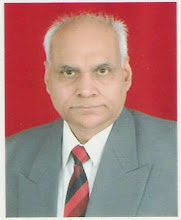Regular Internet users are significantly more politically active than others,finds a recent study* undertaken by Pippa Norris of John F.Kennedy School of Government,Harvard University,Cambridge,MA(Pippa_Norris@Harvard.edu/www.pippanorris.com)as a part of UNESCOWorld Report.
She found the overall score on the mean Political Activism Index,designed by her on four dimensions and 21 parameters,was 4.43 forregular Internet users compared with 2.56 for others,a substantialand significant difference (p-13).She predicts that the primary impact of knowledge societies will be upon facilitating cause-oriented and civic forms of activism,thereby strengthening social movements, more than upon conventional channels of participation exemplified by voting and campaigning.(ibid,p-3).
She notes four main perspectives in literature:
(a) The Internet as a virtual Agora:
The positive view of cyber optimists who emphasise the possibilitiesof involvement of ordinary citizens in direct, deliberativeor `strong' democracy.(p-3).So far hopes that the knowledgesociety could revitalize mass participation in direct or strongdemocracies finds little support from the available empiricalstudies,
(b) The knowledge elite and social inequalities:
The negative view of cyber pessimists who regard knowledge society as re-inforcing existing inequalities of power and wealth (p-4).,
(c) Politics as usual:
The cyber skeptics who argue that both these visions are exaggerated.This view stresses the embedded status quo and the difficulties ofachieving radical change to political systems through technologicalmechanisms(p-5)and
(d) The political market model:
The study hypothesizes that there is a market where the impact of the internet depends in part upon the `supply' of political information and communications, primarily from political agencies, and also upon the `demand' for such information andcommunication from the mass public.In turn the public's demand comes from the social and cultural profile of the online population reflecting long-standing patterns of civic engagement.(p-20).
The study, undertaken for Europe,compares the impact of frequency of use of the Internet on four main dimensions of activism: voting, campaign-oriented, cause-oriented, and civic-oriented. These are summarized into a 21-point `Political Activism' Index combining all dimensions,namely,1. Voting (1 point),2. Campaign-oriented (5 points),3. Cause-oriented (5 points),4. Civic-oriented(10 points)based on data from the 19-nation European Social Survey2002.The evidence presented in this study suggests that the rise of the knowledge society in Europe has had the greatest positive consequences for civic society by strengthening cause-oriented and civic-oriented activism, rather than mass participation in campaigns and elections.(p-20).
This study is highly recommended to any one interested in gauging the impact of information and communication technologies(ICTs) on governance.The author needs to be congratulated for undertaking this study and UNESCO for sponsoring it.
Dr D.C.Misra
October 18,2004
(Source: http://in.groups.yahoo.com/group/cyberquiz/message/83)
____________________________________________________________________________________
* Norris, Pippa (2004): Building Knowledge Societies:The Renewal ofDemocratic Practices in Knowledge Societies,Cambridge,MA,HarvardUniversity,John F. Kennedy School of Government,February,UNESCO World Report,pp 34,available:http://ksghome.harvard.edu/~pnorris/Acrobat/UNESCO%20Report%20Knowledge%20Societies.pdf(accessed October 18,2004).
Subscribe to:
Post Comments (Atom)

No comments:
Post a Comment